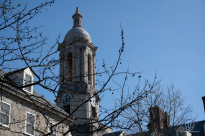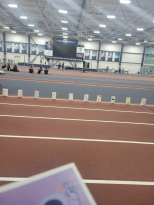Jaywalkers…what delivery drivers fear
The National Highway Traffic Safety Administration reported that 4,280 pedestrians were killed in automobile collisions in 2010, the most recent year statistics were available.
This marks a 4 percent increase from the total in 2009 (4,109), and the first upward change in what had been annual decreases since 2005, when 4,892 pedestrian fatalities were reported in the United States.
In nearly a quarter of those 2010 fatalities, officials discovered the blood alcohol content of victims was .08 or more – in other words, they were legally drunk. When you combine that as well as the fact that 79 percent of pedestrian deaths occur at non-intersections, some officials are asking if more can be done to protect pedestrians.
“It’s such a tragic loss of life,” said State College Mayor Elizabeth Goreham in a recent interview. “In State College especially, we have a strong cultural habit of jaywalking, and when you’re drunk, it’s much more dangerous.”
Brandon Arsenault, 28, has been a delivery driver in State College for several years. He said that he fears hitting someone every night he’s out on the road.
“Yes, I do, because they’re everywhere,” Arsenault said. “They don’t watch where they’re going. Because it’s a college town they feel like they can just walk around and we have to slow down for them because we expect to know that they are drunk, and it’s not always that we do. We’re just driving, trying to get places and [we can] be at the wrong place at the wrong time.”
The NHTSA also reported that 68 percent of fatalities nationwide occurred between the hours of 8 p.m. and 4 a.m., with 48 percent occurring on a Friday, Saturday or Sunday, which, according to Arsenault, are the busiest days of the week for drivers.
For Goreham, one late night story stuck out for her – a girl nearly killed by a plow truck driver.
“He thought he saw a bag on the road,” she said of the driver. “He got out to look and it was a young girl who was passed out in the road. If he’d [had] cut her with the blade, she [would have] died. It’s a tragedy.”
Arsenault said that pedestrians need to take more responsibility for themselves and their actions while they’re out drinking.
“It’s not just us [as drivers]. They have to want to be more responsible with their drinking, because we can’t bend over backwards to make it more safe. They have to take responsibility as well,” Arsenault said.
Goreham said the key lies in self-awareness on the part of pedestrians.
“It’s all about awareness of the alcohol impairment. Otherwise, I’m afraid too often people will feel invulnerable rather than more vulnerable,” she said.
It doesn’t all have to be on the shoulders of the pedestrians, Arsenault said. He said there are things drivers, especially delivery drivers, can do to help keep people safe.
“Just be more cautious; don’t text while you drive,” Arsenault said. “Even though it may be their fault, I’d still feel terrible hitting someone. We just have to be more careful and let each other know, ‘Hey, there are a lot of people in this area.’”
He continued, “As drivers, maybe we can let each other know where there are hot spots at certain times to let them know to be careful. Or we could just go about it in a way that we can call the police more often when we see more drunk people, and in the long term maybe people realize that people are getting upset, maybe we shouldn’t get so drunk or be so reckless.”
Both Arsenault and Goreham said that in the grand scheme of things, it all boils down to the general welfare of people.
“There’ve been a couple of times that I’ve seen kids so drunk walking. I don’t want to get them in trouble, but for their own safety I’ll call the police to make sure they get home safe,” said Arsenault.
“We need your brains to be healthy and your bodies to be healthy,” Goreman said. “You’re generation is going to save us from the decisions we’ve made in the past.”







